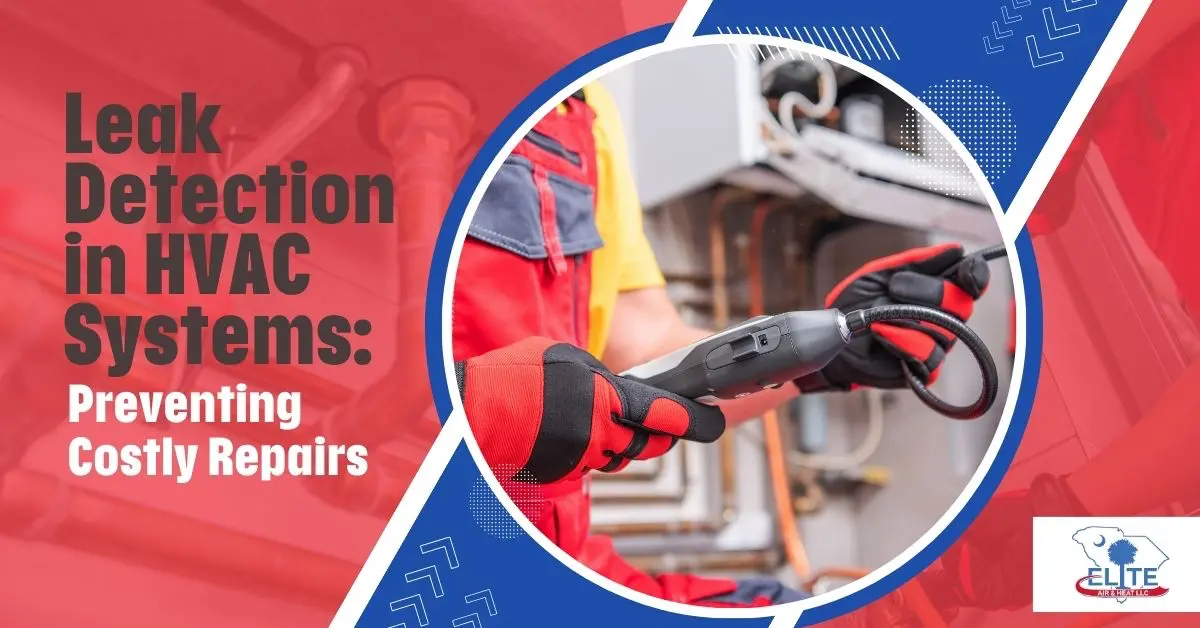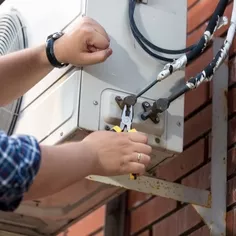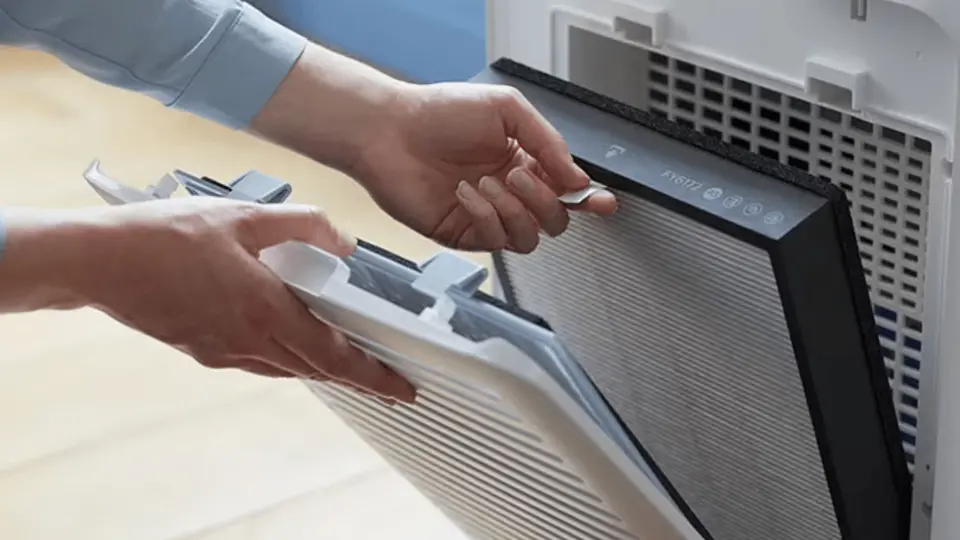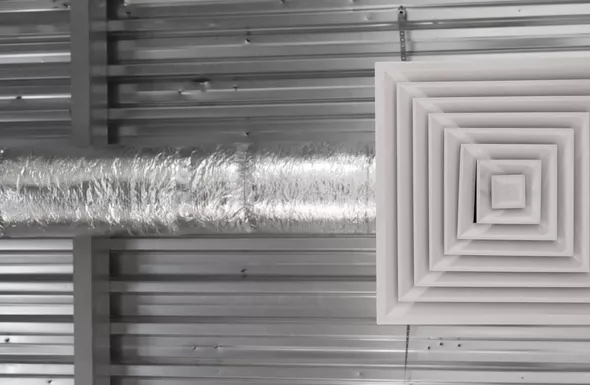Nothing ruins a hot summer day like coming home to an overheated house and stuffy indoor air. We’ve all been there – sweating bullets as soon as you walk through the front door on a 90-degree afternoon.
Turning on the AC does little to help as cold air refuses to blow. After dreading the inevitable repair bill, you check the HVAC system only to discover the tell-tale signs of a refrigerant leak. A simple leak that goes undetected can end up costing you big time in costly HVAC repairs down the road.
Let’s talk more about HVAC leaks here!
Leak Detection in HVAC Systems
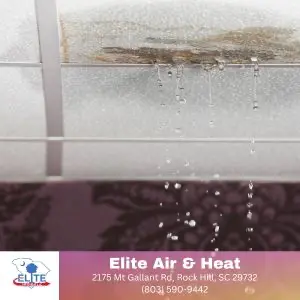
Leak detection in HVAC (Heating, Ventilation, and Air Conditioning) systems is a critical maintenance task that has the ability to avoid expensive repairs and guarantee the effective operation of these systems. Pipes are the backbone of HVAC systems coils, and connections to transport and control the flow of refrigerant or coolant, and any leaks in this complex system can cause several issues.
An important justification for often leak detection is to conserve energy and reduce operational costs. Even minor leaks can force HVAC systems to work harder, consuming more energy and potentially shortening their lifespan. Additionally, refrigerant leaks can harm the environment as these substances are often potent greenhouse gasses.
Moreover, unnoticed leaks can reduce cooling or heating capacity, uneven temperature distribution, and increase component wear and tear. Over time, these issues can escalate into major, expensive repairs or even complete system failures.
By investing in proactive leak detection measures, such as routine inspections and advanced leak detection equipment, building owners and HVAC professionals can identify and address leaks promptly, minimizing downtime, energy waste, and the financial burden of extensive repairs or replacements.
Effective leak detection is a crucial aspect of HVAC system maintenance that contributes to sustainability, cost-efficiency, and uninterrupted comfort in residential and commercial spaces.
How to Detect Leaks in HVAC Systems
Detecting HVAC leaks is crucial for maintaining the system’s efficiency and preventing hurting people. Here are some tools and methods that are often used to identify leaks in HVAC systems:
- Visual Inspection: Start with a visual check of your HVAC components, including pipes, connectors, and the unit itself. Look for any signs of moisture, water, or oil stains, which can indicate a leak.
- Pressure Tests: HVAC professionals can conduct pressure tests to assess the system’s integrity. A pressure drop can be a clear indicator of a leak.
- Electronic Leak Detectors: These devices are sensitive to the presence of refrigerant leaks and can pinpoint their location. They are commonly used for detecting leaks in HVAC systems.
- UV Dye: UV dye can be injected into the HVAC system. Using a UV light, technicians can identify leaks by spotting fluorescent dye at the source.
- Infrared Scans: Infrared cameras can detect temperature differences associated with leaks, making them useful for identifying heat-related issues in HVAC systems.
- Soap Bubbles: For gas leaks, applying a soapy water solution to suspected leak points can reveal bubbles where gas is escaping, indicating a leak.
- Condensate Pan Alarms: Some HVAC systems have condensate pans that can develop leaks. Installing a condensate pan alarm can alert you to potential water leaks.
Can HVAC Leaks Damage My Home?

Yes, HVAC leaks can damage your home in several ways:
- Water Damage: Leaks in drain pans, condensate lines, or other components can lead to water damage in your home. If left unaddressed, this may include ceiling stains, wall damage, and structural issues.
- Growth. Moisture from HVAC leaks can create ideal conditions for mold to grow, which can make the air inside your home unhealthy and affect your health.
- Decreased Efficiency: Refrigerant leaks can reduce your HVAC system’s efficiency, resulting in higher energy bills and less effective temperature control.
- Health Concerns: If mold or mildew develops due to a water leak, it can lead to people living there having breathing problems and other health problems.
- Increased Repairs: Neglected leaks can cause further damage to HVAC components, leading to more extensive and costly repairs.
Are HVAC Leak Repairs Expensive?
The cost of HVAC leak repairs can vary widely depending on several factors:
- Type and Location of Leak: The type of leak (e.g., refrigerant or water) and its location within the HVAC system can impact repair costs.
- Extent of Damage: If the leak has caused damage to other components or your home, repairs may be more expensive.
- Complexity of the System: More complex HVAC systems with intricate piping may require more repair time and labor.
- Professional Rates: Labor costs vary based on location and the specific HVAC service provider.
While some repairs, such as fixing a minor refrigerant leak or replacing a faulty valve, can be inexpensive, major repairs or extensive water damage may incur significant costs. However, addressing leaks promptly is essential to prevent further damage and expenses.
What’s the Cost of Routine HVAC Maintenance?
Routine HVAC maintenance costs can also depend on a number of things, such as where you live, the type of system, and the specific services included. On average, preventive HVAC maintenance visits range from $100 to $300 per visit.
These routine checks typically involve cleaning, inspection, lubrication, and minor adjustments to ensure the system’s optimal performance.
In the long run, regular upkeep can save you money as it helps prevent issues that could lead to expensive repairs or premature system replacement. It also improves energy efficiency and prolongs the lifespan of your HVAC equipment.
Are There DIY Methods for Leak Detection?

While homeowners can perform some visual inspections, many HVAC leak detection methods require specialized equipment and professional expertise. Doing fixes on your own without the right tools can cause bigger problems, and may not be cost-effective in the long run. Here are some basic steps homeowners can take:
- Visual Inspection: Regularly inspect your HVAC system for any visible signs of moisture, stains, or damaged components. Look for leaks around pipes, connectors, and the condensate pan.
- Change Filters: Change or clean your air filters often to maintain airflow and prevent strain on the system.
- Clean Drain Lines: Keep drain lines clear of debris to prevent clogs leading to water leaks.
- Monitor Performance: Pay attention to any changes in your HVAC system’s performance, such as reduced cooling or heating capacity, as these may indicate a problem.
- Maintain Clear Vents: Ensure that vents and registers are unobstructed for proper air circulation.
Detecting and addressing HVAC leaks is essential for maintaining the efficiency of your system and preventing potential damage to your home. While homeowners can perform some basic inspections and maintenance tasks, relying on trained HVAC technicians for accurate diagnosis and safe repairs is advisable, especially for more complex issues or refrigerant leaks.
Putting money into regular maintenance can keep you from expensive fixes and make sure your maintenance lasts as long as possible while providing peace of mind for your home and budget.
Take Action Now to Prevent Costly Repairs from HVAC Leaks
At Elite Air & Heat, LLC, we urge you to act now to prevent costly repairs from HVAC leaks. Detecting and addressing leaks early is crucial to safeguard your home, budget, and system efficiency. Our expert team is here to help with professional leak detection, timely repairs, and routine maintenance.
Don’t wait for small issues to escalate into major problems—contact us today to ensure your HVAC system operates optimally, reduces energy consumption, and avoids expensive repairs down the road. Proactive measures can save you from significant expenses and discomfort later on.
Your home’s comfort and your peace of mind are our top priorities. Contact us for more information!
